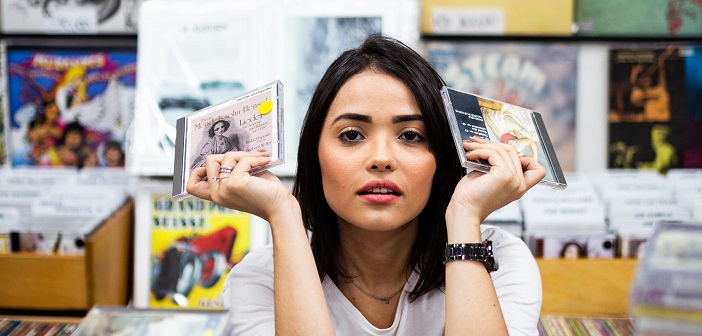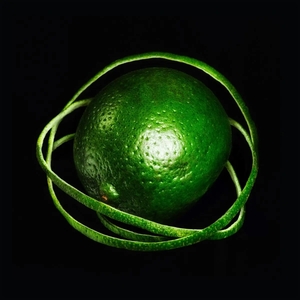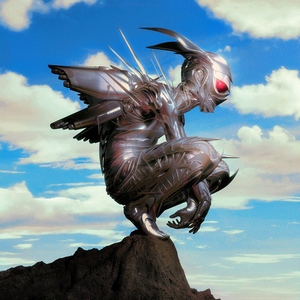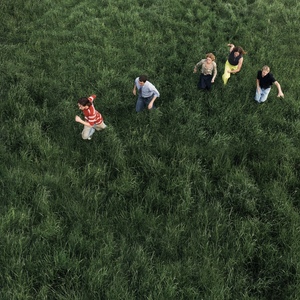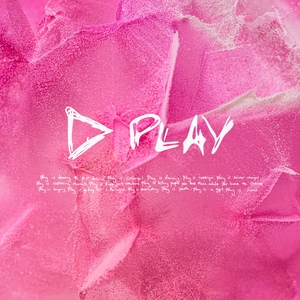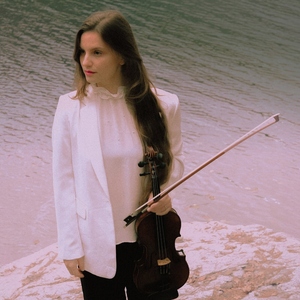Album review overview: Big Thief, Ed Sheeran and more
Dozens of new albums arrive at Maxazine’s editorial staff every week. There are way too many to listen to them all, let alone review them. It ensures that too many albums are left behind. And that’s a shame. That is why today we post an overview of albums that arrive at the editors in short reviews.
Big Thief – Double Infinity
With their sixth studio album, Adrianne Lenker and her now trio-sized Big Thief make an unexpected but accomplished leap into more polished waters. After bassist Max Oleartchik’s departure, the remaining members chose a radically different approach: three weeks of intensive jamming at The Power Station in New York, surrounded by a community of guest musicians including legendary ambient artist Laraaji. The result is an album that simultaneously forms their most accessible and most experimental work. Opener “Incomprehensible” immediately reveals what has changed – where raw intimacy was previously paramount, Big Thief now opt for gleaming, atmospheric soundscapes that bathe Lenker’s voice in an almost celestial glow. It’s a deliberate choice that won’t convince everyone, but one that emphasises the emotional weight of her songs in a new way. “No Fear” best demonstrates the strength of this approach: seven minutes of meditative repetition in which Joshua Crumbly’s bassline creates a hypnotic groove whilst Lenker mantra-like sings about letting go of fear. The track demands patience from the listener, but rewards it with a transcendent experience that is rare in contemporary music. The album’s emotional core lies in “Grandmother”, where Laraaji’s ethereal contributions lift the track to another dimension. Lenker’s promise to “turn everything into rock ‘n’ roll” sounds here like a cry of liberation, a way of dealing with loss by transforming it into music. Although the production sometimes overshadows the spontaneous energy of their earlier work, Lenker’s songwriting remains of unprecedented vulnerability and beauty. “Happy With You” is pure joy in musical form, whilst “How Could I Have Known” closes the album with a sense of hope despite all the changes. (Anton Dupont) (8/10) (4AD)
Sopico – Volez-Moi
Four years after “Nuages”, the Parisian rapper-singer-guitarist Sopico returns with an album that confirms his unique position in the French musical landscape. “Volez-Moi” is a 16-track exploration of his artistic boundaries, in which he further develops his characteristic mix of rap, blues and rock with electronic elements. Album opener “Une clope après l’amour” immediately sets the tone with pianist Sofiane Pamart, whose sensitive accompaniment perfectly contrasts with Sopico’s measured flow. It’s representative of an album that refuses to be caught in genre conventions but follows its own path between intimacy and grandeur. The production, largely in the hands of his regular collaborators, shows a more mature artist who comfortably navigates between different styles. “Slide” combines trap elements with blues guitar work, whilst “Grand cercle” takes a more experimental direction with ambient-like sound layers. Textually, Sopico remains true to his introspective style, but “Volez-Moi” feels less melancholy than his previous work. There’s room for optimism and even playfulness, as in “J’vais le faire”, where his confidence as an artist shines through. The featuring of Hash24 on “Michelangelo” brings a fresh energy that serves the album well. What particularly distinguishes the album is Sopico’s ability to organically weave his guitar playing with modern production techniques. Tracks like “Ça fait mal” demonstrate how he uses live instrumentation to give electronic beats a human warmth that much contemporary rap lacks. The sequencing shows some unevenness here and there, with several mid-section tracks feeling less essential, but the strong opening and powerful conclusion make up for much. (Elodie Renard) (7/10) (Spookland Records/Polydor France)
Parcels – LOVED
With their third album, Australian disco-funk fetishists Parcels prove that the magic of their sound doesn’t depend on a specific line-up. After bassist Max Oleartchik’s departure, Jules Crommelin, Louie Swain, Patrick Hetherington, Noah Hill and Anatole ‘Toto’ Serret have joined forces for an album that forms their most cohesive and infectious work to date. Recorded in studios spread across Berlin, Byron Bay, Sydney, Oaxaca and Mexico City, “LOVED” breathes a cosmopolitan cheerfulness that perfectly fits their retro-futuristic aesthetic. “Safeandsound” opens the album with an irresistible melody reminiscent of Phoenix’s finest moments, whilst the production has just enough modern sheen to avoid sounding like a nostalgia exercise. The album’s heart lies in tracks like “Yougotmefeeling”, in which the band demonstrates their ability to hide complex harmonic structures behind seemingly simple pop hooks. The way the keyboards, guitars and drums interact with each other testifies to a band that knows each other through and through, despite changes in their line-up. “Summerinlove” shows their more melancholic side, a story about romantic nostalgia wrapped in dreamy production reminiscent of Air’s finest moments. The contrast with the upbeat funk of “Leaveyourlove” proves their versatility as songwriters. Producer Dom Monks has done excellent work balancing the band’s vintage instincts with a clear, modern sound. Each instrument gets space to breathe without the dense arrangements becoming overkill. The only real drawback is that several tracks in the middle section feel somewhat predictable – the Parcels formula is now so polished that spontaneity sometimes gives way to craftsmanship. (Jan Vranken) (7/10) (Because Music)
Ed Sheeran – Play
After the introspective folk exercises of “Subtract” and “Autumn Variations”, Ed Sheeran returns to his comfort zone with “Play”, an album that fully delivers on his promise of “big pop”. The result is his most direct and joyful album since “Divide”, albeit not without the usual pitfalls of his mainstream ambitions. “Azizam” immediately sets out the international course with its Persian-inspired production by Ilya Salmanzadeh. The track shows Sheeran at his best: taking world music elements and transforming them into universally appealing pop power. The way he links Irish traditions to Persian melodies proves his underrated ability as a musical bridge-builder. “Old Phone” provides the emotional depth needed to give the album weight. Born from a confrontation with his past during a court case, Sheeran transforms personal melancholy into an anthem about letting go. The production, tight but warm, perfectly supports his storytelling qualities. Unfortunately, after a strong start, the album falls back into familiar patterns. “Symmetry” and “Camera” feel like exercises in the Sheeran playbook without offering real surprises. The loop pedal showcases that make his live shows so memorable translate less effectively on the album. “Heaven” closes the album with typical Sheeran grandeur; orchestral, emotional and designed for stadium sing-alongs. It’s craftsmanship of the highest order, but lacks the authenticity that characterises his best work. What saves “Play” from mediocrity is Sheeran’s irresistible ability to write melodies that immediately nestle in your memory. (Norman van den Wildenberg) (6/10) (Gingerbread Man Records/Atlantic)
Marion Wolf – Am Ondan End
The violin is not a usual instrument in jazz, although it does have a history in the genre. Stéphane Grappelli, for example, was a pioneer in the swing that became popular between 1920 and 1940, through, amongst others, Django Reinhardt; Grappelli played in the accompanying Quintet du Hot Club de France with Reinhardt. Later, violinists also appeared with some regularity in bebop and fusion, including Regina Carter and Didier Lockwood. We can now add Austrian Marion Wolf to that list, who delivers her debut with “Am Ondan End” featuring eight original compositions. On it, she not only plays the violin but also sings. It takes some getting used to: a violin as a solo instrument in modern jazz, especially since the accompaniment consists only of pianist Fabian Mang, drummer Christoph Suttner, and bassist Luka Dobnikar. Yet we are pleasantly surprised: thanks to carefully arranged compositions, the elegant pieces gain depth through Wolf’s lyrical violin playing, and it all sounds remarkably rich. You can hear that Wolf is classically trained, although she completely stopped playing classical pieces after her final exam. Not only is her violin playing lyrical, the same applies to her lyrics, which are inspired by, amongst others, Rainer Maria Rilke. A good example is “Da Rilke Bua (For the Poet)”: in almost sensual singing, she celebrates a landscape as Rilke did in his early poetry… at least, that’s what we think we understand, as Wolf sings in the dialect of the Austrian province of Carinthia. It’s one of the slower pieces on the otherwise very varied album that, for example, opens up-tempo with “Wolfsberg (Returning)”, the place where Wolf was born. On “Am Ondan End”, you hear a multitude of influences in Wolf’s music, including world music, as in the closing title track, after which we can confidently state that this Austrian has set a new, original standard for jazz violin. (Jeroen Mulder) (7/10) (Sonus)
![]()

